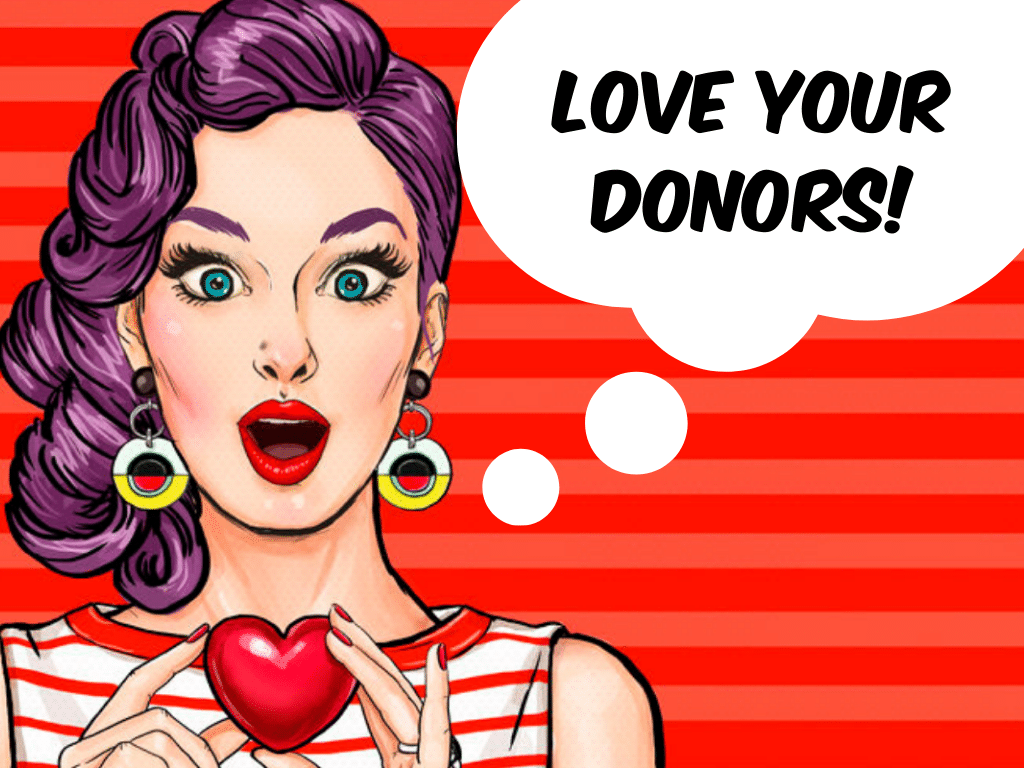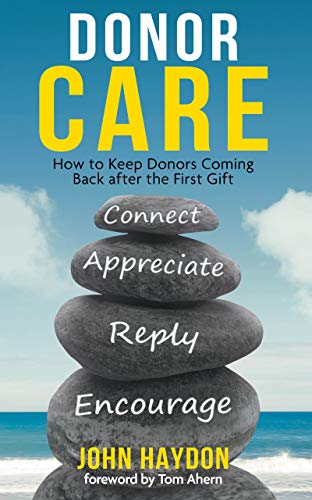Book Review: Donor CARE: How to Keep Donors Coming Back AFTER the First Gift, by John Haydon
When you read a book, you often get a sense of the author. It’s so much like they’re in the room with you, speaking directly to you. It’s more so with books than with other forms of writing, because writing a book demands so much heart, soul, and mind — it can hardly help but bring the writer to life for you. This effect is even stronger when the author is a good writer.
That’s one reason Donor CARE by John Haydon is such a blessing to have. It’s kind of a way for us to keep John here with us. And it’s not the only reason you should get this book.
As you probably know, we lost John to cancer a few weeks ago. It’s a devastating loss for the whole fundraising community. John was smart, experienced, wise, and kind. His previous books, his blog, and his sessions at conferences helped so many of us become better fundraisers. It’s hard to believe that we will no longer see or hear John Haydon.
Except we have his final book. And Donor CARE is really and truly John Haydon.
The book is built around the acronym CARE that will help you remember what we must do to care for our donors:
Connect: Every human being needs to connect, and that includes donors. This means we must connect by telling great stories that touch their hearts, tell them how their giving makes a difference, and let them know the community they are part of as donors.
Appreciate: Let donors know you appreciate them. Not just their money, but them as people.
Reply: Make sure your donors are in a relationship with your organization — not just a series of transactions. Get back to them — quickly and wonderfully — when they give. Report back on their giving. Create ways to have conversations with them.
Encourage: Treat them well. Let them know how awesome they are. One of the main reasons donors stop giving (and non-donors don’t give in the first place) is that nagging feeling that their donations don’t matter. Your job is to make sure your donors never feel that way.
John really captured the reason donors give, and what that means to us as fundraisers. Check out this brief and insightful explanation:
Donors don’t give because they’re generous. They give because it feels great. And being a hero feels the best. This isn’t just unicorn thinking. It’s a phenomenon that’s hard-wired deeply in the human brain from millions of years of evolution. When you tell donors they can “feed hungry children”, “stop human trafficking” or “give twice the hope”, you make them the hero.
Most important, John makes it clear that donor care starts inside each of us.
Ultimately, CARE is an attitude. CARE is human, it begins with how you feel about your work, and how you feel about your donors.
If you don’t have it in your heart, you can’t really practice donor care! That insight alone is worth the price of the book.
Donor CARE is a practical, deep, and helpful book that will give you a lot to think about — and a lot to do. And it’s heartbreakingly beautiful. You’ll learn a lot about the man and his battle with cancer. You might not expect that from a book about being a better fundraiser, but, believe me, it enriches the book in amazing ways.
And it will enrich you, both as a human being on the journey we’re all on … and as a fundraiser.
Want real and practical help on keeping your donors by caring for them? Consider one-on-one Coaching with an expert Moceanic Fundraisingologist. To find out more, click here to schedule a FREE advice call with the Fundraisingologist of your choice.
Related posts:











